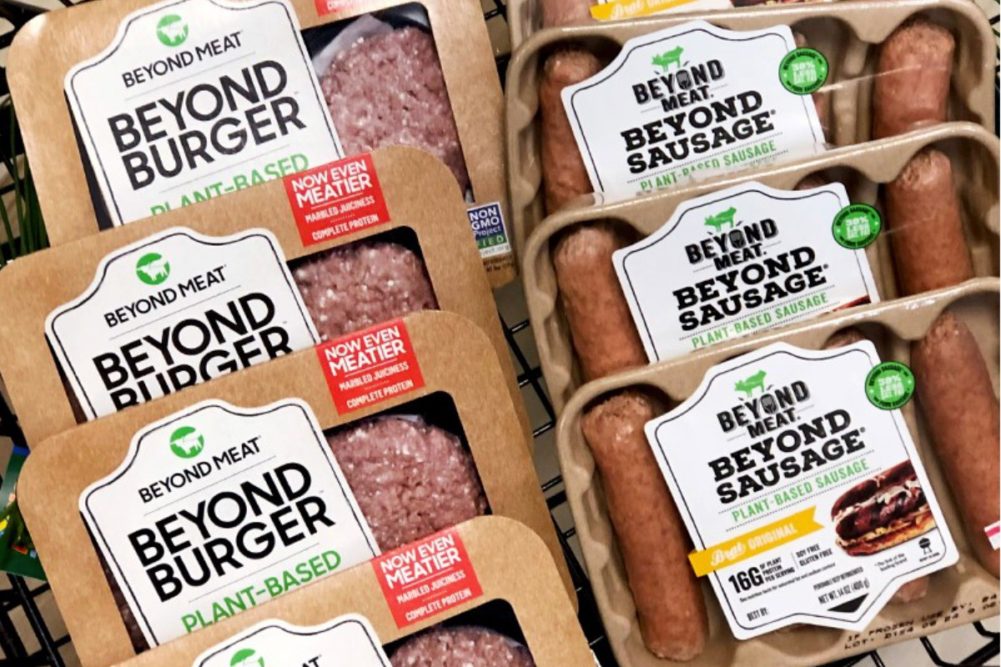CHICAGO — US retail sales of Beyond Meat plant-based meat alternatives rose to $75 million over the 52 weeks ended Oct. 6, 2019, marking a 135 percent increase from the previous 52-week period, according to Information Resources Inc., a Chicago-based market research firm.
The increase gave Beyond Meat a 10 percent market share of the plant-based meat substitutes market, good for third place. MorningStar Farms continued to lead the category with sales of $302.5 million, accounting for a 41 percent market share, after the brand’s sales grew 3.8 percent in the 52 weeks ended Oct. 6, 2019. Sales for second-place gardein, which had a 14 percent market share, dropped 3.9 percent to $103.6 million.
“MorningStar is still the top-selling plant-based meat substitute, due at least in part to its strong distribution, but Beyond Meat is seeing the strongest growth as it works to increase distribution across most channels,” said Tim Grzebinski, client insights principal at IR., in a Jan. 17 blog.
Beyond Meat Inc., El Segundo, California, went public in 2019 and began trading on the Nasdaq at $65.75 per share on May 2. The stock opened at $110.40 per share on Jan. 17. The Kellogg Co., Battle Creek, Michigan, owns the MorningStar Farms brand, and Conagra Brands Inc., Chicago, owns the gardein brand.
Meat substitute sales in the United States in the 52 weeks ended Oct. 6, 2019, were $746.3 million, according to IRI. Sales of plant-based meat substitutes have grown by 10 percent since 2018, which compares to a sales increase of 2 percent for meat, Grzebinski said.
Almost all plant-based segments are gaining market share in their categories, Grzebinski said. US sales of refrigerated plant-based milk alternatives have increased by 6 percent since 2018, which compares to a decline of 0.7 percent for refrigerated dairy milk sales, he said.
Sales of plant-based yogurt alternatives in the United States have grown by 36 percent since 2018, which compares to a decline of 1.4 percent for yogurt. US sales of plant-based ice cream alternatives have increased by 0.8 percent since 2018 although the three-year compound annual growth rate after 2015 was 47 percent, Grzebinski said. US retail sales for ice cream and sherbet have decreased by 1.3 percent since 2018.
He pointed to flexitarians as a factor in rising plant-based sales. The percentage of vegetarians and vegans in the United States remains at 2.5 percent combined, but one-third of Americans consider themselves flexitarians and 55 percent said they are trying to add more plant-based foods to their diet, Grzebinski said.



